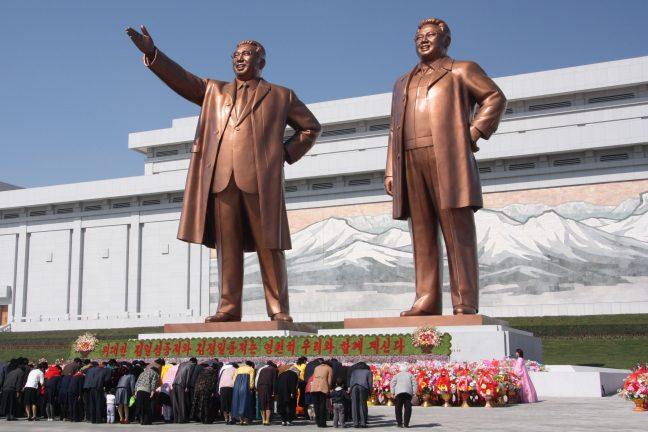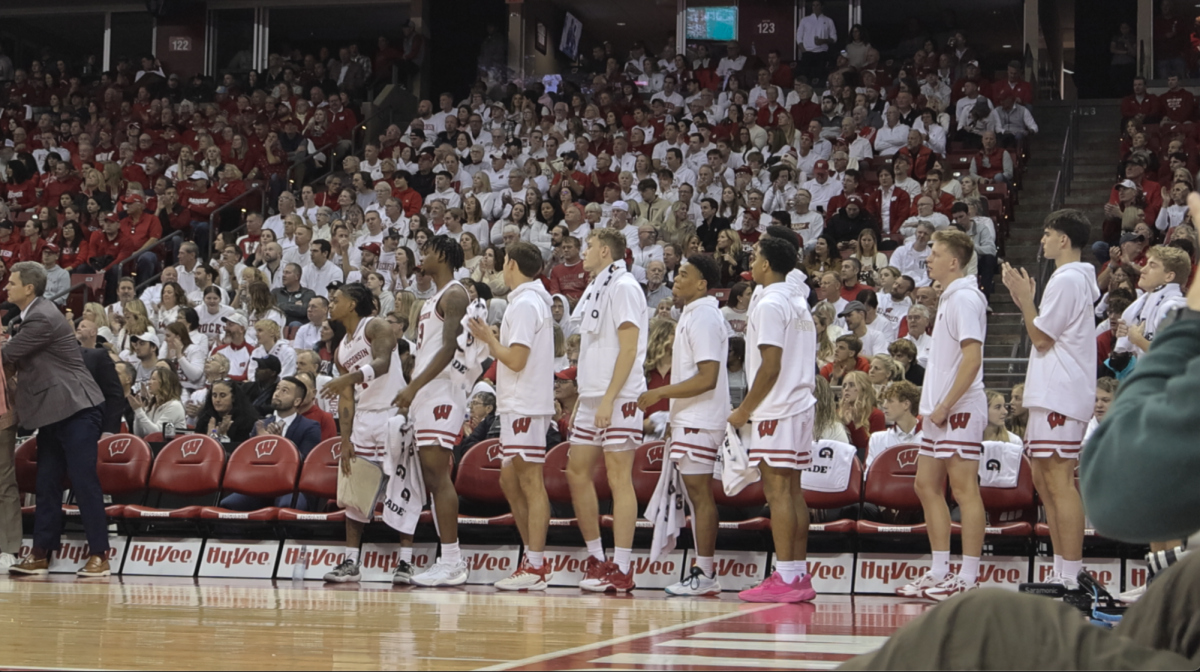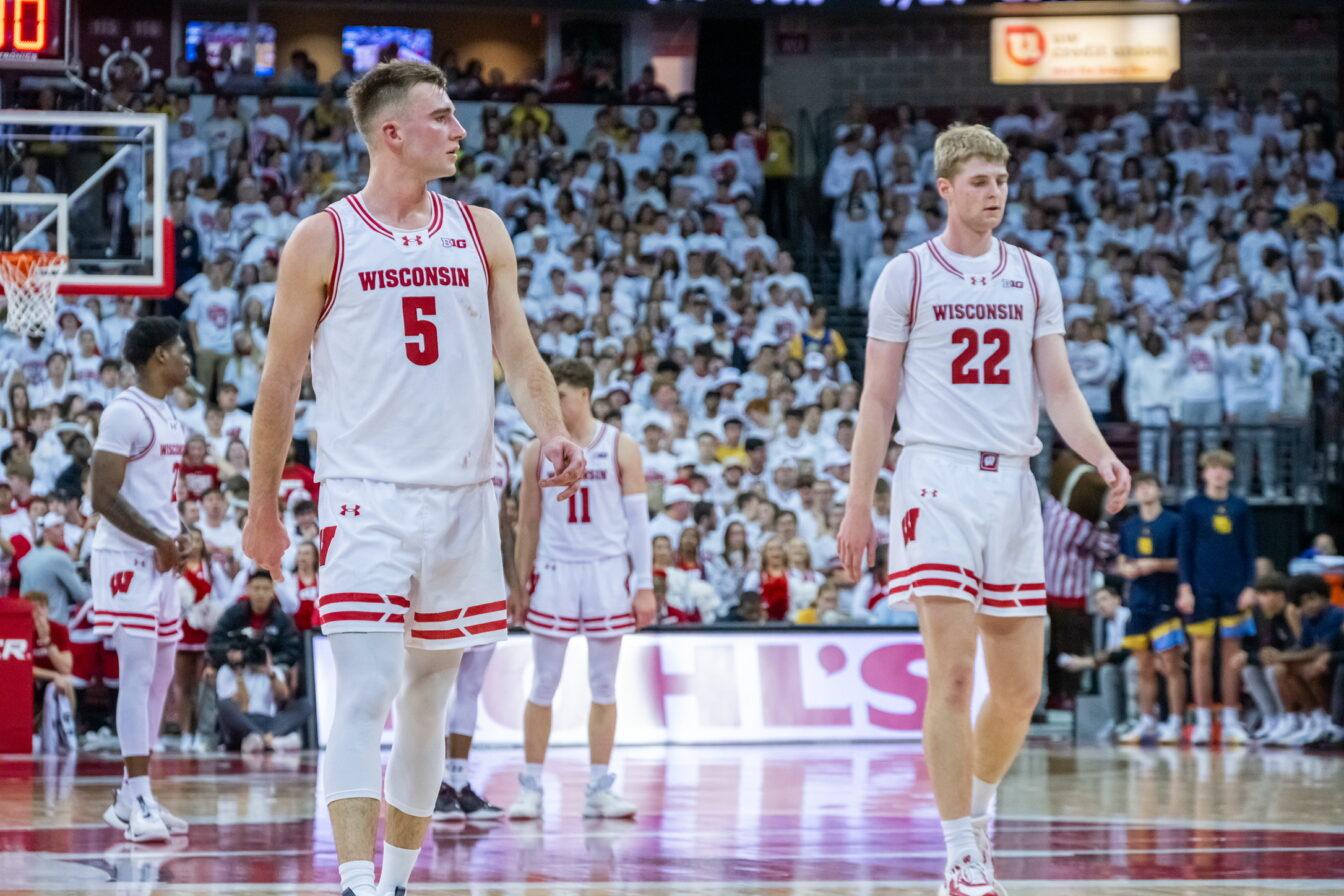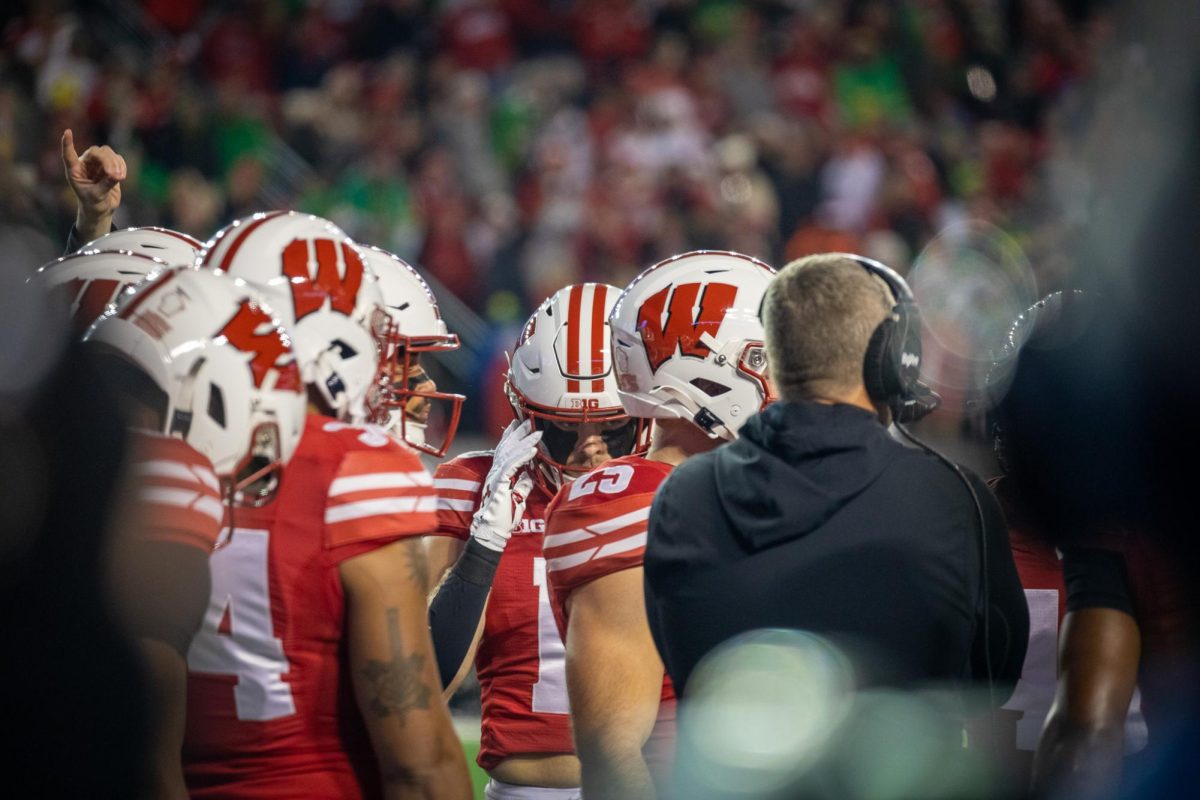The 2018 Winter Olympics theme has got to be an underlying current of precariousness. I’m not only referring to the dare-devils riding skeleton or jumping 300 feet on skis, but also the geopolitics of the Korean peninsula.
The University of Wisconsin proudly watches as current and former Badgers alike compete in the games in men’s and women’s ice hockey for Team U.S.A., Canada and even the joint team for Korea. But their performances, win or lose, are bookended by the possibility of a thawing – ever so slightly – of Korean relations.
A joint Korean team has marched at the opening ceremonies of past Olympics but never competed together. The joint women’s hockey team this year features 12 North Koreans, 22 South Koreans and the massive weight of more than 70 years of division.
UW professor David Fields —a former Fulbright Scholar and current affiliated faculty at the UW Center of East Asian Studies — is an expert on U.S.-Korean relations.
Fields is aware of much of the narrative perpetuated about this athletic unification. Depending on who you ask, this is either a heart-warming display of affinity or a Machiavellian scheme. But, he takes a much more measured approach to evaluate the event’s consequence.
Canada defeats United States in Olympic women’s hockey preliminaries
“It’s amazing how we look at a country like North Korea and try to ascribe a singular motivation to them,” Fields said. “Why are they developing nuclear weapons? There are all kinds of reasons.”
Fields compared the way we look at North Korea to the very different way we evaluate something like the Iraq War and the U.S. decision to invade. The point is: Things are complicated, and state motivations are rarely cut-and-dry.
In joining the Olympics, Fields said one of their efforts seems to be to “change the narrative.” Rather than continue to trot out the image of Kim Jong Un and the North Korean military, they are looking to put their athletes front and center.
While many of their athletes are not top notch — Fields noted any less-than-par performances would not be broadcasted back home in North Korea — the figure-skating duo of Ryom Tae Ok and Kim Ju Sik performed quite well, though they fell short of the podium.
Fields noted all of it amounts to what he called a “diplomatic charm offensive.” Another motive he sees is an effort by North Korea to try and “drive a wedge” between the South and the U.S.
“There’s a big gulf between how South Koreans view the North and how Americans view the North,” Fields said. “We view North Korea as an enemy, as very much a pariah state. The South Koreans have a much more complicated relationship with North Korea. They were only recently divided and for the previous 4,000 years it was one country.”
Fields described the nature of how South Koreans view North Koreans as “family members, as kin, as brothers.” He clarified they understand the danger and it is not as if South Koreans are supportive of the North Korean State. However, they have “a fundamentally different view of North Korea than we do.”
During a nuclear test in North Korea, when all the 24-hour news channels in the U.S. have Kim Jong Un’s face plastered next to a missile silo for two days, South Koreans are aware — but it is not nearly the same kind of media circus. Not only is it a callous grown from years of living next to a rogue nation — or, as Fields said, “a sense of fatalism” — but an understanding North Korea wouldn’t use these weapons on them.
Americans and onlookers across the world have a tendency to limit their consideration of the Korean conflict to only North Korea. South Korea is a democracy and a close ally, so many make the mistake of overlooking the South for the more bombastic, intriguing and dangerous North.
This was quite overtly evident during these Olympics by the broadcast of NBC anchor Joshua Ramo.
“[Japan] was a country which occupied Korea from 1910-45, but every Korean will tell you that Japan is a cultural, technological and economic example that has been so important to their own transformation,” Ramo said at the presence of the Japanese Prime Minister Shinzo Abe during the opening ceremony.
How will the Olympics impact men’s and women’s hockey this year?
Fields spoke of why he felt this obvious blunder, which disregarded years of Japanese colonization of Korea, was doubly offensive coming from an American. He made sure to note there are 50 million South Koreans and they all have their own view, but boiled down the majority of opinions to two sides.
“Some Koreans view the U.S. occupation of South Korea after the Japanese colonization as salvation of half the peninsula,” Fields said. “Others view it as a continuation of the colonization of Korea — ‘the Japanese left just in time for the Americans to show up.'”
With this in mind, it is hard not to shift your notion of the prevailing narrative which tells the story of the righteous U.S. defending their democratic pals from the hands of their evil twin neighbor. It is so much more complicated.
As the Olympics carry on in Pyeongchang — 183 miles from the North Korean Capital Pyeongyang — know there is more to the story than Badger men’s hockey coach Tony Granato leading a rag-tag team sans NHL’ers to possible Olympic glory, or Team U.S.A.’s women’s hockey team filled to the brim with Bucky’s friends trying to knock off Canada.
In these Olympics, the most fascinating and complex rivalry plays on the same team.







